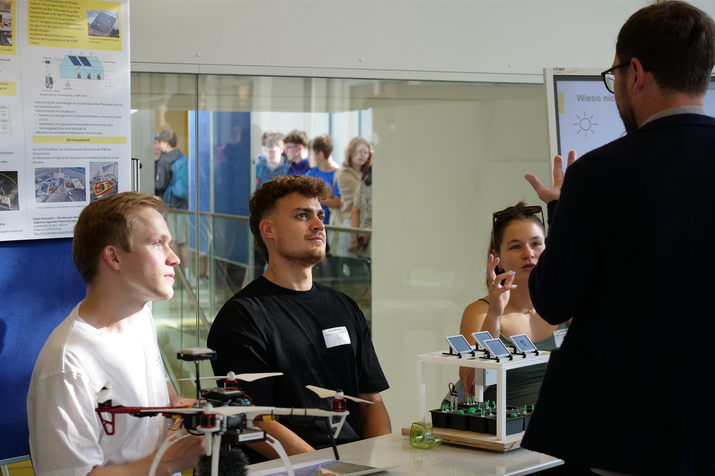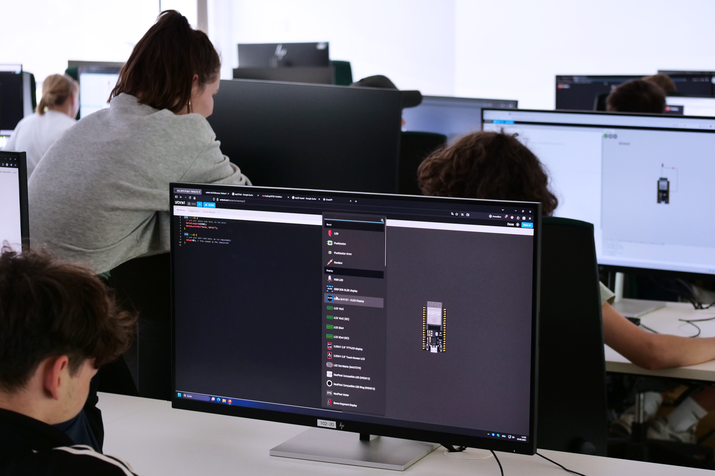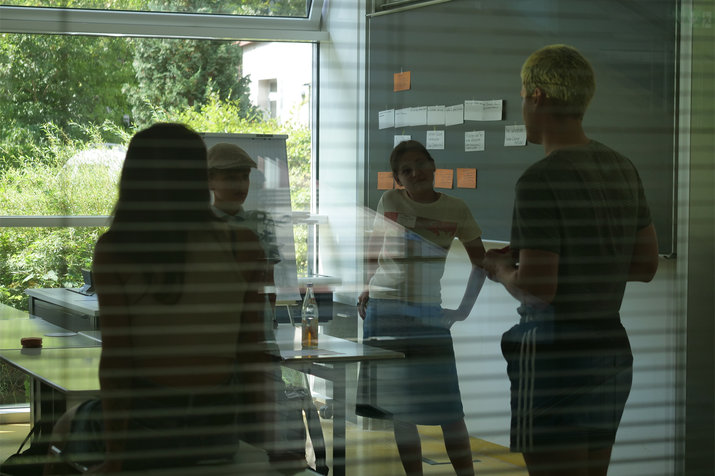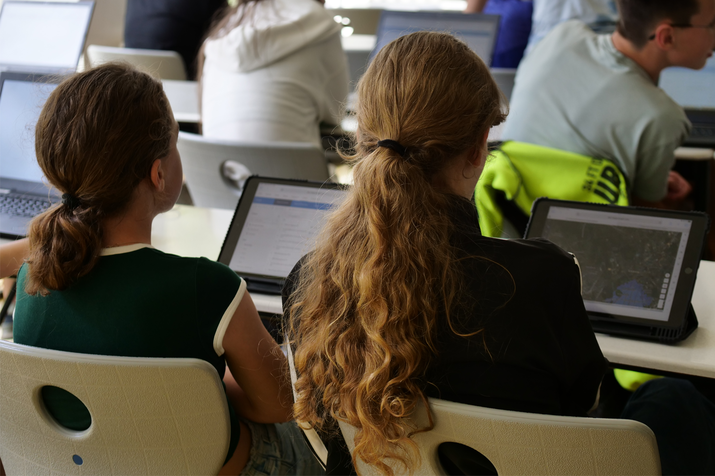Around 110 pupils from five Leipzig schools took part in the official launch event on 20 August 2025
The FaGuLab educational project aims to investigate the impact of green roofs on passenger shelters on Leipzig's public transport network on biodiversity in the city and, based on this, to develop solution strategies for improved, site-appropriate and insect-friendly greening. The project was officially launched with the kick-off event on 20 August 2025 at the Faculty of Engineering at HTWK Leipzig.
All project participants from project phase 1 were invited to the event, where the students, their teachers and accompanying persons were treated to a varied programme of specialist impulses, interactive stations and themed workshops on 20 August 2025.
After the welcome address by project manager Stefanie Penzel (HTWK Leipzig), Prof Dr Jean-Alexander Müller (Rector of HTWK Leipzig) and Heiko Rosenthal (Mayor and Councillor for the Environment, Climate, Order and Sport of the City of Leipzig) addressed the participants.
Presentations by experts on the topics of greening, climate resilience, biodiversity and digitalisation were also part of the programme:
- Sebastian Hänsel (Office for Schools of the City of Leipzig) presented the FaGULab educational project.
- Dr Lucie Moeller (UFZ) explained the role of green roofs for climate-resilient cities.
- Dr Anett Richter (Office for Environmental Protection of the City of Leipzig) presented the greening strategy of the City of Leipzig.
- Prof Dr Mathias Rudolph (HTWK Leipzig) showed how environmental parameters are recorded using modern sensor technology.
- Rolf A. Engelmann (Leipzig Botanical Garden) highlighted the importance of green roofs as biodiversity hotspots.
- Robert Klesser (Leipzig Natural History Museum) spoke about microrefugia for invertebrates.
- Jonathan Otto (ESRI Deutschland GmbH) provided insights into working with geographic information systems (GIS).


During the break, the young people had the opportunity to find out more at information stands. These included the companies Optigrün and ZinCo from the green roof sector and Prof Rudolph's IMT project group, which presented innovative measurement technology projects.




The afternoon was characterised by active participation: In four different workshops on sensor technology, botany, GIS and real-world laboratory & public relations, participants were able to deepen their knowledge and develop their own initial project ideas.
The successful kick-off laid the foundation for an exciting project period. FaGULab sees itself as a transformative education and participation project that aims to actively involve pupils in shaping a greener, more sustainable city. The project is part of the "Transformative Education for Sustainable Development" funding initiative of the German Federal Environmental Foundation (DBU).